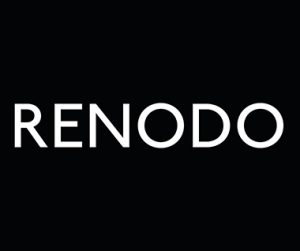Renodo means in Latin to knot or link some elements with others. This project tries to collaborate for the reconstruction of the bonds within the value network of the book from a digital-triggered and innovative approach, through collaboration and exchange of ideas.
COLLABORATION
The key element of the project is collaboration. This is an initiative of the Germán Sánchez Ruipérez Foundation (FGSR), that enjoys the substantial collaboration of the International Publishing Distribution Association (IPDA) and the support of the Ministry of Education, Culture and Sport of Spain.
WORK PILLARS
The project is based on a diagnostic on the main challenges and breakthroughs in the industry elaborated by IPDA and FGSR. During the first steps of this common undertaking the following fields have been identified as matter of interest:
- Smartphones as reading devices
- IoT and the book industry
- Dynamic prices
- Convergence of formats
- Rights Management Systems
- Blockchain
- CX
EXCHANGE OF IDEAS AND EXPERIENCES BETWEEN PROFESSIONALS
In each of the work areas a conversation and a more formal effort is generated to consolidate some content to share towards the professional community, which the companies and professionals of the publishing sector may trigger innovation at all levels of the (native) digital sector.
TRAINING
The collaboration from IPDA is demonstrated by the leadership offered by its members international figures of reference in each field:
- Jens Klingelhoefer: formats
- Denis Zwirm: DRM
- José Manuel Anta: Dynamic prices
- Eric Briys: IoT and the book sector
- Antonio Tombolini: Blockchain
In the context of Renodo, face-to-face formative experiences or webinars are carried out from the digital platform that is used for the development of professional collaboration dynamics.
DISSEMINATION
The vocation of the Renodo project is to generate white-papers and documentation to disseminate it among a broader area of professionals within the publishing sector.
These contents are accessible, for the most part, from this website and are composed of videos with opinions of the participants, podcast with leaders in each field, documents of conclusions of the working sessions, business cases and other documentation on innovation good practices.
A good part of the contents will be built from the workshops with experts with access to the most innovative experiences in the sector of distribution of creative and cultural content.
THE MEANING AND STRATEGY OF RENODO PLATFORM
Luis González
Director of GSR Foundation
The sector of the European cultural and creative industries is struggling to meet the consequences of digital change and the threats from the new tech agents, who have demonstrated to understand in a more accurate way the implications of the process of digitization of the economy.
The current trend can be described as a decapitalization of cultural and creative industries in favor of multimedia companies from the West Coast of the United States. The decapitalization is implying a destruction of jobs and assets in general in the book sector and a progressive loss of opportunities in an area that had been offering quality jobs with a big potential of creating value. The book sector requires an effort to assimilate the phenomenon of multiplication of business models, which today appear as a plethora with a wide dispersion of various value propositions and in the means for the relationship with customers.
The main field of conflict, innovation and opportunities for the relocation of the value network, may be the subsector of content distribution where the small and fragmented companies seem to be struggling to catch up with the fast pace of digital innovation.
The diagnosis made by the Germán Sánchez Ruipérez Foundation (FGSR), after a series of research projects led us to the conclusion that a crucial factor to enhance the ability to react and increase the competitiveness of the sector is to leverage the traditional assets of the sector and trigger innovation through a collaborative and united approach that could compensate the atomization of the sector. For this reason, the main partner of this project is IPDA, the International Association of Digital Distributors.
THE ALLIANCE WITH IPDA
The participation of IPDA (International Publishing Distribution Association) in this project is a great strength for the platform because it enables the participation of companies that make part of the crucial publishing distribution sector. In fact, it is a structural element for this initiative because it entails that a platform with this central view works, precisely, with the players which are used to perform between different nodes of the value network, linking content with consumers or publishers with outlets or buyers.
During the joint work sessions of FGSR and IPDA, four scenarios were the main goals of the project of the project around the dialogue to define a new strategy to reorganize the sector (‘renodo’ is a Latin verb that could be translated as re-tying or organizing). The result of this process meant the identification of four ideas or insights about the challenges for this industry in order to overcame the gap with the tech companies when adopting the innovative consequences of the digital dissemination within society:
- The modernization of the sector and the use of new technologies as a driver for innovation in content distribution.
- The launching of hybrid value propositions, insofar as they integrate analog and digital media and also products with services.
- The redefinition of the skills that imply a new professionalization of this sector.
- The generation of European collaboration networks and alliances that compensates the microstructure and fragmentation of the sector and its players compared to the large dimensions of the technology companies.
IT IS ABOUT TO GIVE CONTINUITY TO AN EFFORT
The FGSR has devoted much effort during the last ten years to research and experimentation on the impact of the digital in the book industry (with projects such as Territorio Ebook, the Readmagine forums or the Emprendelibro incubation program). We also worked in collaboration with associations in the telecommunications sector, the publishing sector and digital content in general (such as the TISP project) or organized experimental models with Spanish startups (as in the Nubeteca e-lending system).
These works have provided us with some insights about the challenges facing the Spanish and European cultural and creative industries in order to gain critical mass and to incorporate in their value propositions the possibilities of creating sustainability and participation that implies the digital by understanding the new role of consumers and their customer experience.
From this restlessness of a ‘nervous organization’, as I like to call our Foundation, we can start progressing along this interesting road:
- Training activity through debate and collaboration for professionals in the cultural and creative industries, aimed at providing information and points of view that would be useful to innovate their business models through the smart use of technologies.
- Articulation of this experience with industry associations and with European networks outside the book sector itself.
- Take advantage of the possible cross-learning that can be given by the fact that RENODO resides in Casa del Lector. This center is the scene of a series of experimental devices in different areas (Design Thinking for libraries, Contemporary Laboratory for the Promotion of Reading, participatory creative sessions, International Digital Distributors Meeting of IPDA, Madrid LX, among others) that generate, opportunities for the ‘learning within the boundaries’, that is to say, incorporating tools and models from areas completely unrelated to our particular industry.
- Offer a channel to companies in the cultural sector and other areas for their participation in innovation projects and the search for public support of European scope for viability.
- Generate knowledge for the advocacy of new policies in the public agenda.
As a result of all those elements, RENODO is a coherent evolution of a set of strategies that we have been implementing for more than a decade and leverages on previous achievements to disseminate something that we hope to be useful in the strictly professional level.



